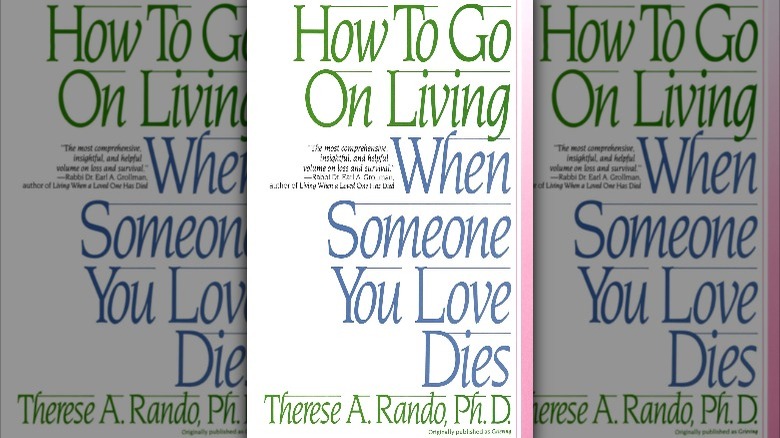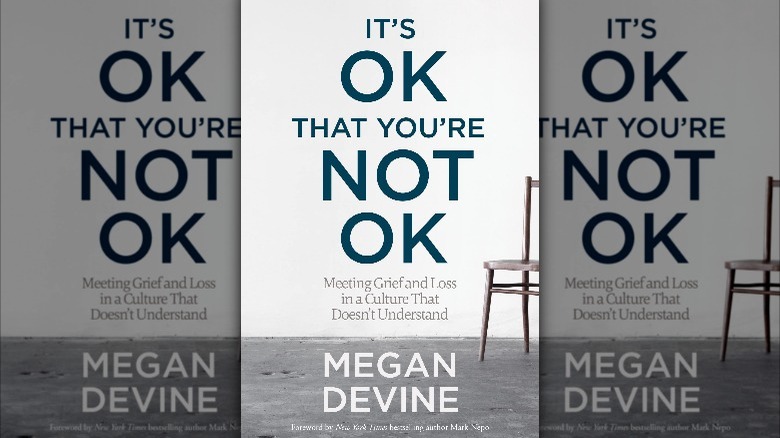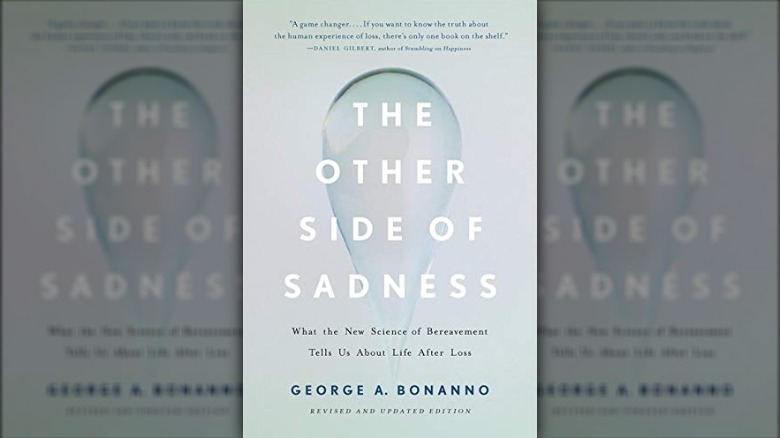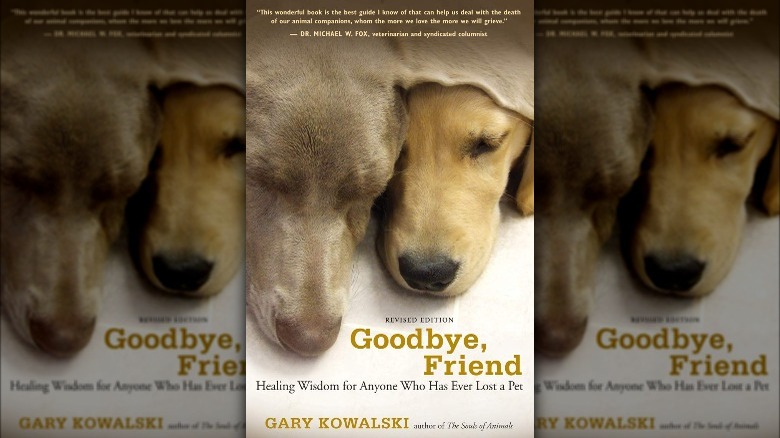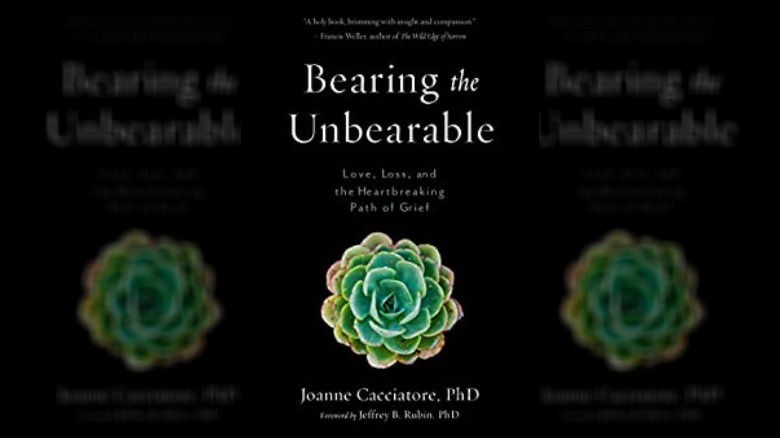The 5 Best Self-Help Books To Read During The Grieving Process
We may receive a commission on purchases made from links.
Grieving the loss of a loved one tops the list of the most stressful life events, according to Verywell Mind. Grief can feel like sadness, anger, confusion, shock, guilt, and emptiness — or even multiple emotions, all experienced at once. And though time may not completely heal all wounds related to loss, grief can be processed and managed over time with the help of therapy, a trusted support network, and gentle self-care days.
Another source of comfort can be found in self-help books about loss. Bereavement resource website Grief and Sympathy explains that reading books about grief and death can expose us to stories of other people's losses, helping us to feel less alone. Additionally, some books are written by mental health experts who offer research-backed advice and useful coping strategies.
If you've recently experienced the death of a loved one, turn to these five self-help books to help walk you through the grieving process.
How To Go On Living When Someone You Love Dies
Therese A. Rando, a clinical psychologist who specializes in trauma and grief, wrote "How to Go on Living When Someone You Love Dies" in 1991, and the book has remained a go-to for those in mourning ever since. "How to Go on Living When Someone You Love Dies" acts as a comprehensive guide to grief, offering both emotional and practical guidance, from how to cope with loss during the holidays to how to plan a funeral.
This book is an all-in-one starter if you're unsure how to pick up the pieces following death. And in the months and years following, too, its gentle advice continues to prove useful on those days when grief reappears.
It's Ok That You're Not Ok
"It's OK That You're Not OK" may be just as helpful for the bereaved as it is for their friends and loved ones who aren't sure how to respond. The book, written by Megan Devine after she tragically lost her partner (per The New York Times), treats grief as a natural response to death, not as a feeling to be minimized.
"It's OK That You're Not OK" offers essays, practical life advice, and research to normalize every step of the grieving process. For those looking to make space for their feelings, in a society where those feelings aren't always understood, this book is indispensable.
The Other Side of Sadness
If you want a scientific understanding of the grieving process, look to "the most renowned grief researcher in the United States," according to The Atlantic, George Bonanno. His book, "The Other Side of Sadness," offers digestible research along with the story of Bonanno's own loss of his father, to help make sense of grief's complex emotions.
"The Other Side of Sadness" offers a much-needed reminder that there's not one "right" way to experience loss. In particular, this book is ideal for those who grieve quietly or with a sense of relief or happiness, emotions that aren't often discussed in grief self-help books.
Goodbye, Friend: Healing Wisdom for Anyone Who Has Ever Lost a Pet
The loss of a pet can be just as devastating as the loss of a human family member. Yet the grief that can follow the loss of a furry friend isn't often discussed or validated in society, and many loved ones may not know what to say when someone's pet dies. The bond shared with a pet is a special one and can require a different approach than the stories and research often shared in self-help books on grief.
That's where "Goodbye, Friend" comes in. The book, written by Gary Kowalski, honors the connection humans share with their animal friends with chapters on processing death, talking to children about pet loss, and giving pets a loving goodbye.
Bearing the Unbearable: Love, Loss, and the Heartbreaking Path of Grief
"Bearing the Unbearable" understands that grief can be an all-encompassing experience, one where you may not feel ready or able to sit down and focus on long book chapters. That might be why this book contains short, easy-to-read sections, making it an approachable companion during life's hardest times.
Author Joanne Cacciatore is an expert in grief, having counseled people experiencing traumatic loss, as well as navigating the loss of her daughter and other beloved family members. "Bearing the Unbearable" puts the grieving process into relatable words through personal accounts that are just as tear-jerking as they are comforting.

